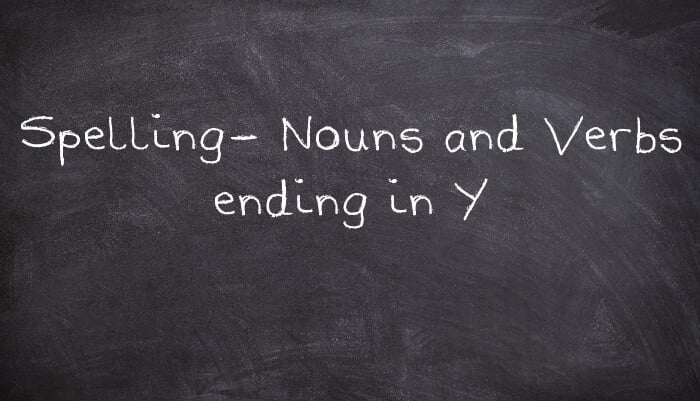Spelling rules for verbs ending in y
Verbs ending vowel + -y
If a verb ends with a vowel before -y, we just add -s for the third person singular:
- I, you, we, they say / he, she, it says
- I, you, we, they play / he, she, it plays
- I, you, we, they buy / he, she, it buys
If the verb is regular, we add -ed for the past tense and past participle:
- I, you, he, she, it we, they stayed
- I, you, he, she, it we, they enjoyed
- I, you, he, she, it we, they toyed
Verbs ending consonant + -y
If a verb ends with a consonant before -y, we remove the y and add -ies for the third person singular:
- I, you, we, they try / he, she, it tries
- I, you, we, they cry / he, she, it cries
- I, you, we, they fly / he, she, it flies
If the verb is regular, we we remove the y and add -ied for the past tense and past participle:
- I, you, we, they try / he, she, it tried
- I, you, we, they cry / he, she, it cried
- I, you, we, they apply / he, she, it applied
Spelling rules for nouns ending in y
Nouns ending vowel + -y
If a noun ends with a vowel before -y, we just add -s for the plural:
- A plays / two plays
- A day / two days
Nouns ending consonant + -y
If a noun ends with a consonant before -y, we remove the y and add -ies for the plural:
- A fly / two flies
- A try / two tries
